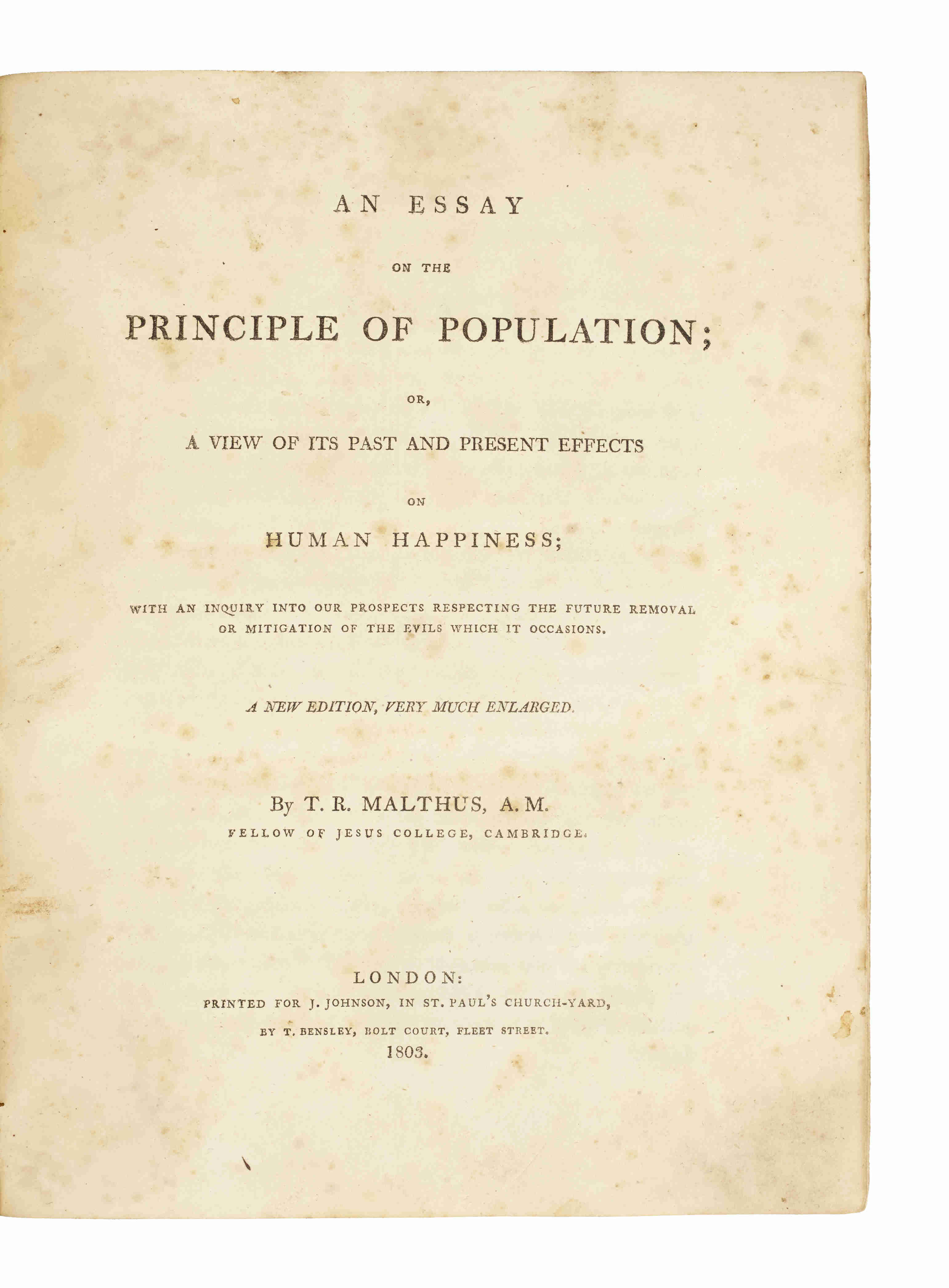

THE ‘GREAT QUARTO’
MALTHUS, Thomas Robert.
An essay on the principle of population; or, a view of its past and present effects on human happiness; with an inquiry into our prospects regarding the future removal or mitigation of the evils which it occasions. A new edition, very much enlarged.
London, Johnson, 1803.
4to, pp. viii, [4], 610; extremities slightly dusty, else a very good, clean copy in half calf and contemporary marbled boards, slightly rubbed with some small loss, recently rebacked, original tips preserved; sprinkled edges; traces of bookplate removed from front pastedown.

Added to your basket:
An essay on the principle of population; or, a view of its past and present effects on human happiness; with an inquiry into our prospects regarding the future removal or mitigation of the evils which it occasions. A new edition, very much enlarged.
Second edition, first published 1798. Called the ‘Great Quarto’, it is the first to bear Malthus’s name and is so revised by Malthus as to be ‘regarded by [him] as a substantially new work’ (ODNB). The first edition, published anonymously, is now a great rarity. This second was the result of much criticism, as well as the great success of the first; further correspondence with Godwin; and travels abroad, on the continent and in Scandinavia, along with reading of travel literature, which resulted in numerous new case studies being added (see Watkin Tench’s copy, below). There are more comparisons with other countries and Malthus places a new emphasis on moral or ‘natural restraint’ (he is opposed to contraception and abortion); allowing that it is possible for such restraint to be practised, Malthus thus reviewed what was ‘too gloomy a view of human nature in his first essay’ (New Palgrave).
The pessimist line, with its origins in Hume, Smith and Godwin, extended from Malthus to Ricardo, to James Mill and his son John Stuart, to Darwin and Wallace, even to Marx and Engels, the utopians who were driven to condemn Malthus, but were themselves prophets of doom and of the ‘misery of the working classes’, in what was arguably an age of remarkable economic and social development (Norman).
Goldsmiths’ 18640; PMM 251; Einaudi 3668; not in Sraffa.

